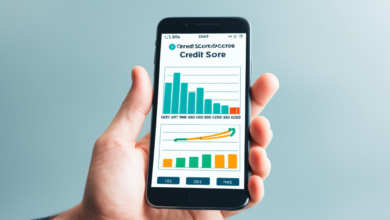Learn How to Protect Yourself From Financial Fraud
According to the Reserve Bank of India, during FY 2020-2021, 229 financial frauds were reported on average every day in India. Moreover, as a result of these frauds, Rs. 1.38 lakh crore was siphoned out of the bank accounts of the fraud victims. It is clear that financial scammers are hard at work and they have been quite successful in being able to con people out of their hard-earned money.
A relatively recent example of such a financial scam is the fraudulent crypto-currency named Morris Coin. To defraud unsuspecting individuals, the scammers created a flashy website without a phone number or address, arranged promotional events with local celebrities, made prompt payments to early-bird investors, and promised returns of 3% per day. Now even though there are many warning signs here including the staggeringly high 3% per day returns, the fraudsters who created Morris Coin managed to collect an estimated Rs. 1.1 million from prospective investors before vanishing. This is only one example of how financial fraud might happen.
In this blog, we will discuss what financial fraud is, how to detect it, how you can protect yourself from being a victim of financial fraud, and your options if you are the victim.
How to Differentiate Between Fraud And Under Performance
Not all of us have the time, patience, or skill to handle our money well. This is one of the key reasons many of us use the services of a financial advisor, broker, or fund manager. As per law, such individuals need to have certain qualifications and should protect their client’s financial interests. However, even with the best efforts of professionals, you might not get the desired investment results. This is especially true in the case of market-linked investments such as stocks and Mutual Funds.
But, the underperformance of an investment due to reasons such as a market crash is not the same as financial fraud. To understand the difference, you need to consider some key factors like whether your financial advisor did the following:
- Evaluated your complete financial situation
- Checked at your investment experience
- Understand your risk tolerance based on factors like age, health, liabilities, etc.
- Explained the tax implications of your investments
- Recommended an appropriate investment portfolio
If your financial advisor has done all of the above, he/she has done what they were supposed to do and the poor performance is due to other factors.
But in many cases, companies or individuals operating in the financial space try to cover up their incompetence through disclaimers as well as various terms and conditions in the contract. In such cases, you might decide to take the legal route against your investment advisor. But you should consider 3 key things when determining if legal action is the right option. In fact you can take legal action only if you are able to prove any or all of the following:
- Proof of professional negligence or proof that the advisor did not have the skills that he or she claimed to have.
- Proven deficiency of service. This can be due to the inability to deliver the service that was promised, which resulted in a missed opportunity.
- Evidence of fraud such as being made to invest in a bogus scheme, carrying out unauthorised trades using your account, etc.
Now, among the above 3 situations, the first two i.e. professional negligence and deficiency of service are grounds for a civil suit i.e. there is no jail time even if your advisor is found guilty. However, fraudulent activities such as unauthorized transactions using your account, if proven, can result in significant jail time along with fines as per the applicable section of the Indian Penal Code.
But court cases are never easy and you need to have solid documentation while being prepared for the emotional strain as well as the costs of litigation. Additionally, do keep an open mind regarding options such as arbitration and out-of-court settlement that you might be offered by the opposition. These can save you a lot of time and money as compared to a long-drawn-out legal battle. However, do consult your lawyer before you accept any type of settlement.
How To Detect a Potential Financial Fraud
Financial fraudsters are highly intelligent and adaptive criminals so they employ a range of sophisticated and effective tactics to dupe people. Let’s take a closer look at some some of these tactics so that you can identify a potential fraud.
-
Benefits That Sound Too Good to Be True
In an earlier section, we mentioned the 3% per day return promised by the fake crypto currency Morris Coin. Now assuming simple interest return of 3% per day return, if you stay invested for a year, your Morris Coin would have grown 10 times. This brings to mind an old English proverb -” if something seems too good to be true, then it probably is”.
In fact, fraudsters spend a significant amount of time and effort to convince people that the high returns they are offering are guaranteed. So, when you see words like “guaranteed high returns”, take a step back and figure out if the benefits or returns being offered are in fact, too good to be true.
-
Promise Of Exclusive Privileges And Freebies
A number of products and services including financial products like credit cards come with exclusive privileges and freebies often as part of introductory offers or membership subscriptions.
While many of these offers are legitimate if offered by a well-known company, fraudsters often use the lure of such privileges and freebies to fool individuals. For example, a real estate agent might offer you a plot of land at Rs. 4000 per square feet and guarantee that if you invest right now, you can easily sell it in 3 months at Rs. 6000 per square feet and turn a profit.
Other scam artists have been known to offer free seminars, free lunch, or a discounted travel package to the person being scammed. The idea is that most people would reciprocate by making a larger commitment. So, beware of these types of “privileges” or freebies that are part of a limited-time offer. Instead, do your homework to determine if a particular investment is legitimate and suits your financial goals.
-
Investment Offers Received From Unknown People
A number of financial frauds in India occur over the phone or via email with scam artists leveraging technology to siphon money out of the bank accounts of unsuspecting individuals. Some red flags that you need to look out for in case you receive a call or email from unknown individuals offering investment opportunities are:
- Lofty promises such as high guaranteed returns
- The insistence for a quick decision to avail the exclusive limited time offer
- Statements like “everyone else is buying / investing”
- Vague information regarding the opportunity and no additional contact information
If you see any of these red flags, it is best to stay away from such “investment opportunities” so that you can protect your hard earned money.
-
Lack Of Verifiable Documentation
Another red flag that can help you identify a potential fraud is the use of documentation that you cannot verify or cross-check from other sources. A few fraudsters have been known to provide documentation like fraudulent account statements, misleading promotional material, hand-delivered notices regarding investment performance, etc. to support the promised performance of their schemes.
The objective of such incorrect documentation is to ensure that the person being defrauded does not physically visit the branch office, check his/her account statement online or ask questions about how the investment is performing. This type of scam is often targeted at senior citizens who might have a limited understanding of how their accounts can be operated online or are unable to visit a branch due to health reasons.
So, if your parents have a financial advisor, do take some time to periodically check their accounts so that you can identify red flags like:
- Unauthorized withdrawals from the account
- Accounts closed with penalty payments due to any reason
- Changes in risk tolerance of their investment portfolio
- Unusual or unexplained banking transactions, etc.
Staying on the lookout for these red flags can help your near and dear ones avoid financial fraud and a lot of future worries.
How To Protect Yourself From Fraud Before It Happens
The old proverb “prevention is better than cure” holds true for various aspects of our life including being the victim of a financial scam. While the government and liability insurance programs do their part in helping victims of financial fraud, it is definitely better if you can prevent from being a victim of such scams in the first place. Here are some steps that you can take to minimize your risk of becoming a victim of fraud:
Many of us have a trusted individual who has been providing us with financial advice or selling financial products to family members for years. Even then, it is a good idea to ensure that this broker, insurance agent or financial advisor is legitimate i.e. licensed and registered with the appropriate authorities.
For example, consider ET Money. The registered entity that offers NPS, insurance products, direct Mutual Funds under the ET Money brand is BanyanTree Services Limited. BanyanTree is a authorised provider of various financial services because it has:
- Valid SEBI registration number as a registered investment advisor (RIA)
- Valid ARN registration number from AMFI (Association of Mutual Funds in India)
- Registered with IRDAI as a corporate agent for selling insurance policies and
- Valid PFRDA registration as a point of presence for NPS (National Pension System)
As an investor, it is good practice to verify all appropriate credentials and the process to check these credentials is easily accesible online. All you need to do is go to the website of SEBI, AMFI, IRDAI or PFRDA website to check if the registration number of a specific company or individual providing financial services is valid.
-
Avoid Chasing Unrealistically High Returns
Over the years, a number of financial frauds have been successful simply because people were lured with the promise of unrealistically high returns like 3% per day, 5% per day, etc. While in many cases, the criminals have been caught by the police, these scams have cost potential investors crores of rupees. In order to protect yourself from being lured by such empty promises you should:
- Adopt the mindset that there is no such thing as easy money
- Never invest without understanding how the investment actually works
- Don’t be a victim of FOMO (fear of missing out). You need not invest just because everyone else is
- In case you are suspicious, do not hesitate in contacting the supervising entity. What’s more do not make the investment till you receive a satisfactory reply to such a query.
-
Control Your Behavior and Biases
Our own behavior and biases are often the reason why we fall victim to financial fraud in the first place. Some of the common investors biases include our desire to be adventurous, the need to be correct every time and even the desire to get rich quickly. Then there is also the fear of missing out (fomo) and willingness to reciprocate to freebies that you might have received from someone.
What’s more we tend to support these wants and needs by making assumptions. For example we might assume something is genuine simply because it is endorsed by a celebrity. Or because a salesperson has visited your home instead of you needing to visit an office, you might want to buy something that he is selling. These are in fact common tactics that fraudsters use to con you out of your hard-earned money. So, do not let your own behavior and biases impact your ability to recognize potential financial frauds.
You should never stop learning about the working of financial products. These days you can easily access a variety of online and even offline resources to stay updated regarding the latest trend in financial products. As your understanding of various financial instruments increases, it will become easier for you to identify the tactics utilized by potential fraudsters.
However, be careful when choosing your source of financial knowledge because many fraudsters use platforms like social media to spread misinformation and dupe individuals.
-
Develop A Process To Identify An Authentic Investment Opportunity
In order to identify an authentic investment opportunity, you need to develop a process that helps you differentiate between a potential fraud and an actual investment opportunity. Such a process could have multiple steps like the following:
Step 1. Always ask for documents and keep updated records of everything related to the investment. Such records can include emails, recorded phone calls, final contract, etc.
Step 2. Get a copy of the agent’s registration certificate emailed to you from the official email id. This can help you determine legitimacy of the individual selling the financial product.
Step 3. When contacting the agent via email, you should also loop in the agent’s superior as well as the company’s customer care department.
Step 4. Make sure you ask all questions related to commissions, exclusions, benefits and risks. Also make sure you get the responses to your questions in writing.
Step 5. Ensure that you sign up for the online and email account statements that you can receive from the financial company’s website or from the company’s official email id.
Step 6. In case you notice any discrepancy or suspicious activity, get in touch with the agent’s superior, the grievance cell of the company or the compliance department first. This will ensure that if the agent is involved in a financial fraud, he or she will have less opportunity to cover their tracks.
-
Maintain The Confidentiality Of Your Financial Information
While this is probably the easiest way to not get defrauded out of your money, it might not always be the easiest to implement. To ensure this, you should never share your user name, baking login information, password, OTP, etc. with anyone including people you might known.
Beyond this, be careful about sharing documents like your PAN and Aadhaar. In case you need to share copies of these documents, make sure you mark them as self-attested along with the purpose for providing the copies. Additionally, never share a blank white paper with your signature or a blank cheque with anyone, no matter how trustworthy the individual is.
What To Do If You Are A Victim Of Financial Fraud
Many victims of financial fraud actually do not report the crime. A common reason for this is that the victims often blame themselves for being duped by the con artists. The shame of having been duped by fraudsters is often strongest among senior citizens who often feel too ashamed to report incidents of financial fraud to the proper authorities or even let their children know of such incidents.
In case you are the victim of financial fraud, it is in your interest to report the crime to the appropriate authorities. That is the only way you have any chance of recovering the money you have lost. One way to do this is to approach the grievance redress mechanism, of the company, industry association, or the industry regulatory body, as applicable.
The first step of this process is to register a complain with the company involved. If there is no resolution by the company or if you are not satisfied with the response, you can approach the related regulatory authority for intervention in the matter. You can do this by either sending an email or lodging a complaint through the applicable grievance portal.
For example, in the case of the National Stock Exchange (NSE) the applicable grievance portal is the NICE PLUS system, while for SEBI the same function is performed by SCORES. India’s insurance regulator too has a grievance redress platform named IGMS, while you can report National Pension System(NPS) related issues on the appropriate website. As a last resort, you can also consider seeking legal assistance from a lawyer in case you need guidance regarding the process and required documentation.
Bottom Line
The instance of financial frauds in India as well as around the world has increased manifold over the last few years. But as long as you take the above steps, you can significantly decrease your chances of becoming a victim of such crimes. Additionally, if you are the victim of financial fraud, do report such crimes to the appropriate authorities so that there is some chance that the fraudsters are caught and you are able to recover the money you have lost.
We hope you found this article useful. If you did, please share it with your friends and family and help us reach more people. If you have any questions or you need clarification on what we have written in this blog, do ask us in the comment section below, and we will respond.






